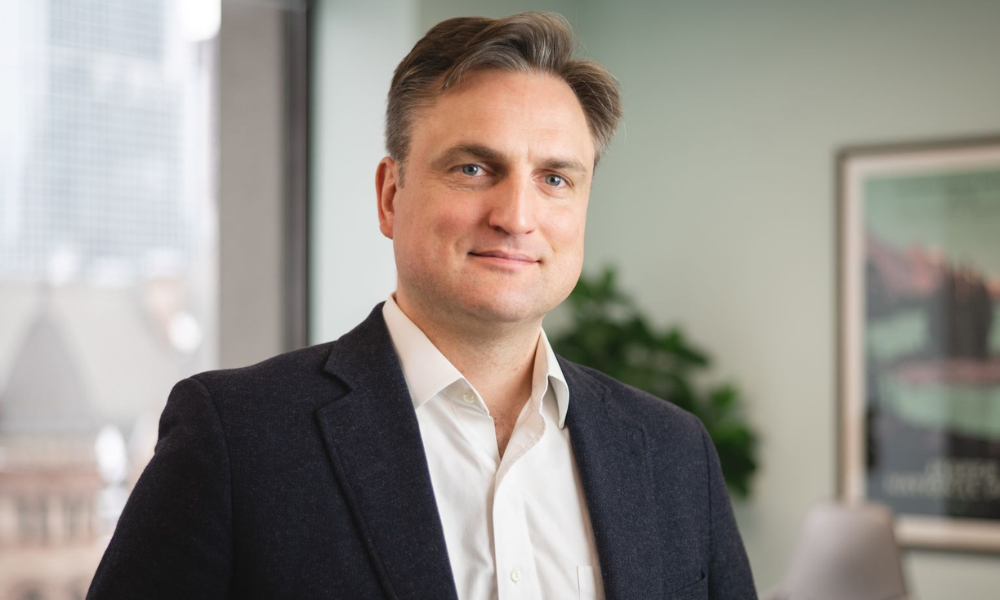Evermore Capital co-founder and CEO shares how a perfect storm forced termination of a Canadian first

In February last year, Evermore Capital burst onto the Canadian ETF scene with the country’s first-ever suite of target-date ETF solutions. Nearly a year to the day later, the company announced plans to terminate all eight of the ETFs after close of business on April 26.
It was a blow to Myron Genyk, the co-founder and CEO of Evermore, who believed as much as anyone in the potential of the simple yet revolutionary idea behind them. But it was a decision that had to be made.
“These ETFs just weren't growing at a rate that would have had them reach scalability and sustainability,” Genyk told Wealth Professional in an interview. “It was costing us a lot of money to keep them operational. And the business model simply wasn't one that private investors were interested in funding.”
While it’s easy for any ETF firm to chalk up fund failures to bad market timing, it’s difficult to think of a worse start than Evermore’s. The plan originally was to launch the target-date ETFs in early January, so that they’d be in the market just in time for RRSP season.
But a confluence of factors pushed the launch date back six weeks to February 23, the day before Russia invaded Ukraine. That effectively derailed the marketing and communications strategy Evermore had planned for its ETFs – and of course the impact didn’t end there.
“The state of the world on February 23 of last year, was much different than the state of the world on February 24,” Genyk says. “The war led to this incredible humanitarian catastrophe, and a horrible situation for the Ukrainian people.”
The war hit home both figuratively and literally for Genyk. Given his Ukrainian ancestry, the 15-year Bay Street veteran couldn’t help but be distracted from the business.
“For a few weeks, it was on my mind a lot,” he recalls. “I wanted to make sure my extended family over there was ok, and I was also thinking about what I can do to help families in Ukraine, as well as those who were already trickling over to Canada.” As a show of solidarity and support, Evermore donated a full three months’ worth of its revenue toward humanitarian efforts in the country.
The Russia-Ukraine conflict also caused disruptions in food and energy supply chains, effectively supercharging the trend toward record inflation that had already been under way. A month later, central banks began their aggressive campaign to restore price stability by raising rates. The high-inflation, high-rate environment plunged both stocks and bonds into negative territory, and sent Canadian investors scrambling for safety.
“We were in a situation where Canadians had less of an ability to save. And those who were able to save were, understandably, extremely hesitant,” Genyk says.
The synchronized sinking of both equities and fixed income broadly was not good news for balanced portfolios, or the asset managers that offered them. With both investor appetite and market performance subdued, Evermore’s ETFs needed more private investor capital to survive. Unfortunately, the suddenly high-rate environment of last year also made for a very challenging capital-raising environment.
“The market for private capital has been drying up, obviously. It’s not just us being impacted … it’s everywhere,” Genyk says. “Dry powder is not forthcoming to many companies.”
Despite the massive setback with Evermore’s first-of-their-kind ETFs, Genyk believes in target-date funds as a vehicle for retirement investment. Aside from people who don’t want to manage a portfolio of stocks and bonds, he sees target-date strategies as an effective all-in-one solution for smaller RSP or TFSA accounts, which frees up time and energy for advisors to focus on other aspects of a client’s situation.
“If an advisor’s client is working at a company that offers group RSP plans, some of these plans have been incredibly generous employer matching programs, and the vast majority of those include target-date funds among the eligible options for investment,” he says. “Target-date funds have always been available in group RSP plans or as high-fee mutual funds, but they’ve never been available to all Canadians for a low fee.”
Learn the other types of RSPs in this article.
While the end may have come too soon for Evermore’s target-date ETFs, Genyk is coming away from the experience with no regrets. He takes pride in what the company brought to the market, as well his team’s work not just to launch the ETFs, but to research and find ways to improve them even after they came to market. More importantly, he’s not letting any moss grow under his feet.
“Five-year plans are a great target, but situations can really quickly change. I've always found it important to remain flexible,” he says. “I love the ETF ecosystem. I think ETFs are a great investment for do-it-yourself investors, for advisors and for institutions. And I plan to remain in the space.”



